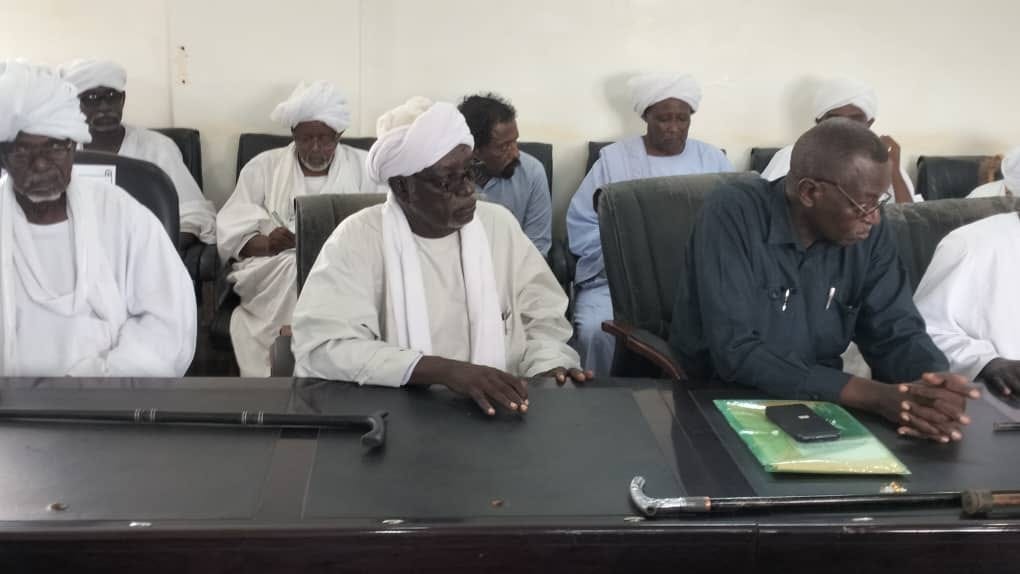RSF establish civil administration in West Kordofan
New state leader calls for international pressure to end war
The Rapid Support Forces (RSF) in West Kordofan, led by Colonel Al-Taj Al-Tijani, have announced the formation of a civil administration after hosting a founding conference for the new government in the state capital, Al-Fula.
The new state leaders, acting under the RSF’s military authority, aim to address the administrative vacuum and collapse of services in West Kordofan caused by the overthrow of the military-controlled government. The formation of the new government is a step toward normalizing RSF rule in one of the many parts of Sudan no longer under control of the military regime based in Port Sudan.
Sudan’s RSF paramilitary, which rebelled against the Sudanese military in April 2023, now controls a territory about the size of Sweden or Iraq, not counting vast northern desert regions through which they are able to move freely. Their ‘control’ over this territory, however, is marked by lawlessness, economic collapse, a near total absence of government services, and mass displacement.
West Kordofan is still contested. It has endured 17 months of on-and-off fighting between the RSF and the Sudanese army. The RSF control most of the state, while the army still control the cities of Babanusa and An-Nahud, and the Hegleig oilfield.
Key appointments
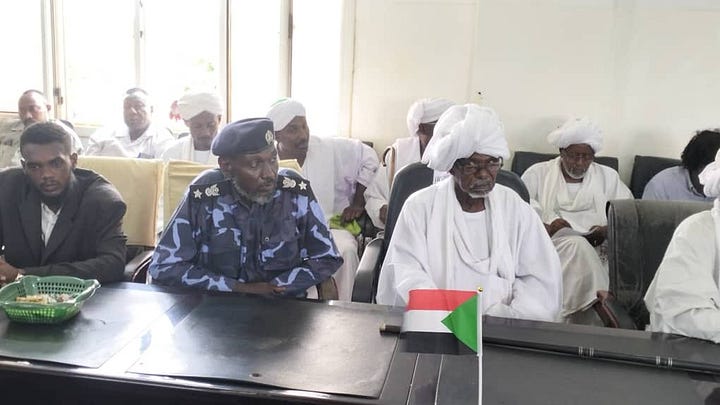
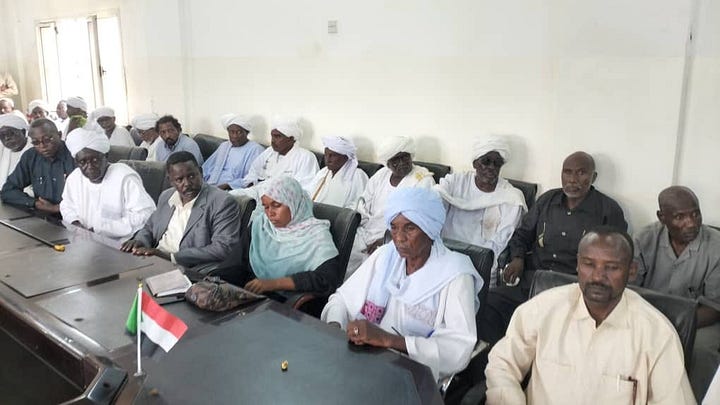
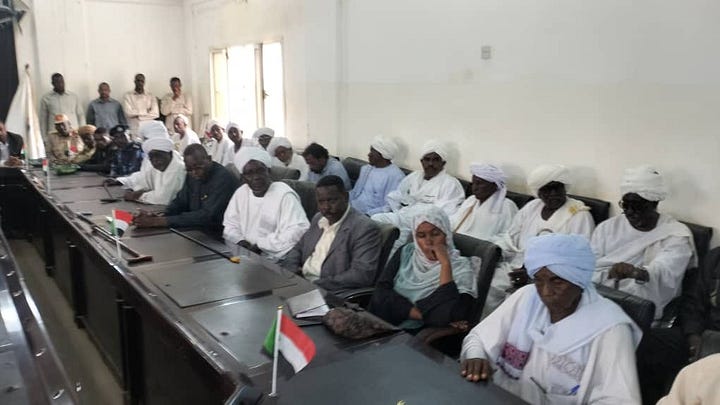
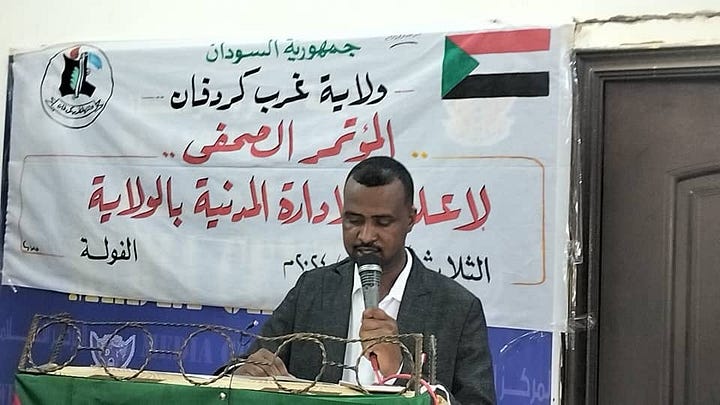
Local leaders gathered September 10 at the state secretariat in Al-Fula and elected from amongst themselves the following new officers:
Administrative Officer Youssef Awad Allah Aliyan was elected as the head of the civil administration, succeeding in a competitoin against three other candidates.
Professor Ezz El-Din Ahmed Dafallah Hasab Sayedo was elected as president of the state legislative council.
Lawyer Mohamed Ibrahim Al-Ahmar was elected head of the state judiciary.
The newly formed civil administration will set up a civilian government in the coming days. Its objectives include managing state affairs, delivering essential services, and addressing the needs of citizens in health, education, and security.
At a press conference at the West Kordofan State Government Hall, Yusuf Awadallah Aliyan, the new head of the civil administration, emphasized his commitment to justice and good governance. He discussed the war's impact, including internal displacement and the refugee crisis. Aliyan pledged to foster national unity and prioritize citizenship as the basis for rights and responsibilities.
Absence of basic services
Aliyan noted that the state has suffered from displacement caused by the ongoing conflict between the army and the RSF. Over 275,000 displaced families are currently in West Kordofan, living with host communities that have shared resources with them. Despite this, Aliyin reported shortages in food, medicine, and shelter materials, calling for urgent international intervention and humanitarian aid.
The war and absence of government have led to significant shortages in essential services such as water, electricity, education, and healthcare. Aliyan assured that the civil administration will work to improve security, stability, and service delivery while providing humanitarian aid and promoting community peace.
In his concluding remarks, Aliyan delivered three key messages:
1. To the State Community: He expressed his commitment to serving the people rather than leading them and urged for unity and collaboration.
2. To the Sudanese Community: He called for pressure on the warring parties to cease hostilities and reject hate speech and regionalism to preserve national unity.
3. To the International Community: He thanked them for their efforts to halt the war and called for increased efforts to protect civilians, deliver aid, and support humanitarian operations in West Kordofan and the wider Kordofan region.
Lastly, Aliyan expressed gratitude to the RSF leadership in West Kordofan and all those who contributed to the founding conference of the new administration, including youth, women, civil committees, local administrators, and religious leaders. He expressed hope for an end to the conflict and a return to stability in Sudan.
Criticism of the new civil administration
Some activists, including Mahmoud Ghaleela, have criticized the swift establishment of the civil administration. He argued that it is premature before the full “liberation” of the state from the dissolved National Congress Party's control (RSF supporters typically refer to the army as an organ of the former ruling party). Ghaleela warned that this could lead to negative consequences and potential interference from counter-revolutionary forces.
He criticized the quick formation of the administration, suggesting that it prioritizes power over meaningful change and is driven by “remnants of the old regime.” Ghaleela emphasized the need for the RSF to focus on civilian protection and address ongoing lawlessness and security issues before establishing a new administration.
Additionally, an anonymous civil activist pointed out the lack of female representation in the new administration, noting that women were significantly affected by the conflict. She argued that the formation of the administration should have waited until the entire state was liberated and should have adhered to clear and transparent criteria.
For his part, Citizen Yasser Mohamed reported ongoing instability in Al-Foula, including burglaries and sporadic gunfire, and called for stronger police presence and enhanced protection for civilians.
Related coverage:
'Al Fula has fallen': RSF seize West Kordofan capital
The Rapid Support Forces (RSF) today attacked the West Kordofan State capital, al-Fula, swarming the city on motorbikes, on foot, and on pickup trucks mounted with heavy weapons. They overran the defenders after brief clashes.


